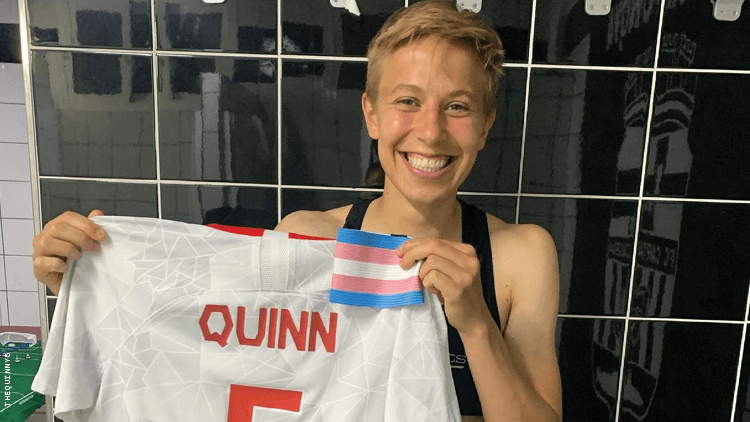A lot of media attention over the past month has focused on Laurel Hubbard, who has been lauded as the “First Transgender Olympian.” But this is not entirely true; there is at least one other trans Olympian in Tokyo. Quinn, who goes by only one name, came out last year and — with the acceptance and support of team mates — continues to play women’s football for Canada. The team has now progressed through to the final. If they beat Sweden in Yokohama tomorrow, Quinn will become the first openly transgender Olympic gold medallist.
This is transgender inclusion as it should be. According to CBC, Quinn prefers they/them pronouns and goes by one name. But — crucially — they are a biological female competing with other biological females. Quinn may identify differently, but sport is not segregated by feelings. Hence why they can still play for the women’s team. There are different competitions for men and women because of certain biological realities: male bodies go through male puberty, and that establishes a permanent and irreversible advantage over female bodies that do not go away.
Hubbard’s case is totally different. The New Zealand weightlifter is a biological male who is competing against women. This is unfair.
A new approach is needed by the IOC: sport should be inclusive, but it must also be fair. Perhaps the future is an open category and a category restricted to biological females? That latter category would include transgender people like Quinn — as long as they had not taken testosterone, a performance enhancing drug.
The new open category would be inclusive of everyone: Men, transwomen and transmen could all compete together, with appropriate facilities provided. What could be more inclusive than that? With safeguards in place to restrict the use of testosterone to transmen as part of a medically supervised transition, it could work.
The quantum leap, however, would be the sex that is affected. For too long, women have been expected to make space for trans people like Hubbard. If the IOC takes up my idea, it would be men making room. In any case, it would be a much fairer contest and no competitor would feel hard done by.
The example of Quinn has shown that there is a place for trans athletes in sport, and at the most prestigious level, too. But it is clear that under the current IOC guidelines it is female competitors who suffer the most. Inclusion may be a buzzword, but — if it is worthy of the name — it must apply to both sexes, and not just the one.











Join the discussion
Join like minded readers that support our journalism by becoming a paid subscriber
To join the discussion in the comments, become a paid subscriber.
Join like minded readers that support our journalism, read unlimited articles and enjoy other subscriber-only benefits.
Subscribe